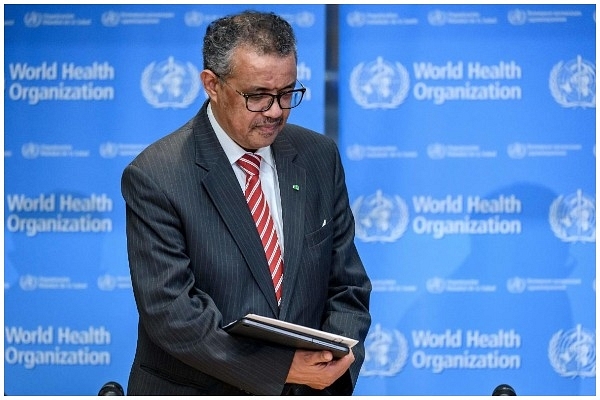News Brief
Covid-19 Resurgence: 'Europe Is Back At The Epicentre Of The Pandemic,' Says WHO
- In Europe and Central Asia region, nearly 1.8 million new weekly Covid-19 instances were reported, up about 6 per cent from the preceding week.
- According to WHO, the rise in hospitalisation rates due to Covid-19 disease in the region is due to inadequate preventative measures and low vaccination rates in some locations.

Tedros Adhanom, Director General of the World Health Organization
The World Health Organization (WHO) said that as many as 53 countries in Europe and Central Asia are facing a "real threat" of a resurgence of the coronavirus pandemic in the coming weeks or are already dealing with a new wave of infections exacerbated by the more transmissible Delta variant of the coronavirus.
The European division of the UN health agency said that nearly 1.8 million new weekly Covid-19 instances were reported in the region, up about 6 per cent from the preceding week and deaths by 12 per cent, with new daily infections surging by 55 per cent over the past month.
WHO's Europe head Hans Kluge told reporters from the WHO Europe headquarters in Copenhagen, Denmark: “We are at another critical point of pandemic resurgence. Europe is back at the epicentre of the pandemic, where we were one year ago.”
“Vaccines are doing what was promised: preventing severe forms of the disease and especially mortality … But they are our most powerful asset only if used alongside public health and social measures,” he added.
Case counts are nearing record levels again, according to Kluge, and the rate of transmission in the region, which spans as far east as the former Soviet countries of Central Asia, is gravely concerning.
As deaths and new cases rise, Kluge said, European countries must work harder to prevent the coronavirus from spreading further. He also stated that the difference now is that health officials are better informed about the virus and have more effective instruments to combat it.
According to him, the recent spike is due to inadequate preventative measures and low vaccination rates in some locations. In the 53-country region, he claimed, hospitalisation rates due to coronavirus caused disease have more than doubled in the last week. He also said that if the current trend continues, the region could see another 500,000 pandemic deaths by February next year.
Considering this threatening situation, the WHO expert urged the respective authorities to accelerate vaccine rollouts, including booster shots for at-risk groups. According to Kluge, “Most people hospitalised and dying from Covid-19 today are not fully vaccinated.”
Additionally, he noted that public health measures like test and trace, as well as social ones like masking and distance, were as important. Klug said that according to WHO’s projections, widespread mask use of 95 per cent in Europe and Central Asia “could save up to 188,000 of the half a million lives we may lose” before February.
According to the most recent seven-day average, the United Kingdom has approximately 40,000 daily cases of Covid-19. This is second only to the approximately 74,000 cases per day in the United States, which has five times the population and has fueled criticism of the government's decision to lift most pandemic-related regulations.
But the country recently approved an anti-Covid-19 pill called Molnupiravir, in a boost to the fight against the pandemic. According to reports, many other countries, like France and Germany have either preserved or reinstated some basic pandemic policies, such as mask mandates, in response to growing instances.
Introducing ElectionsHQ + 50 Ground Reports Project
The 2024 elections might seem easy to guess, but there are some important questions that shouldn't be missed.
Do freebies still sway voters? Do people prioritise infrastructure when voting? How will Punjab vote?
The answers to these questions provide great insights into where we, as a country, are headed in the years to come.
Swarajya is starting a project with an aim to do 50 solid ground stories and a smart commentary service on WhatsApp, a one-of-a-kind. We'd love your support during this election season.
Click below to contribute.
Latest